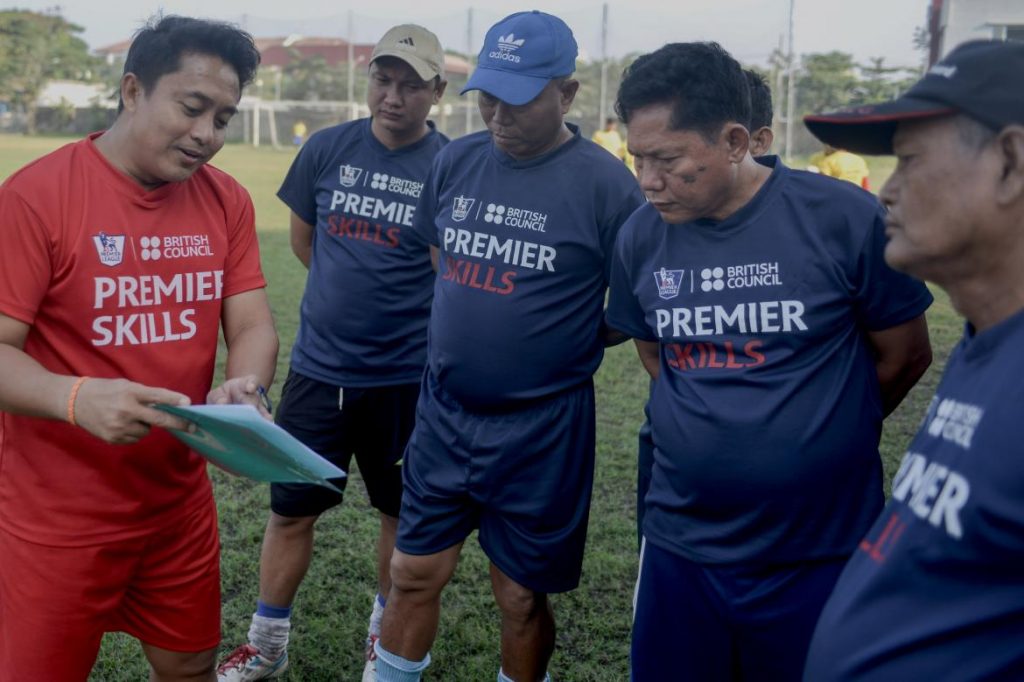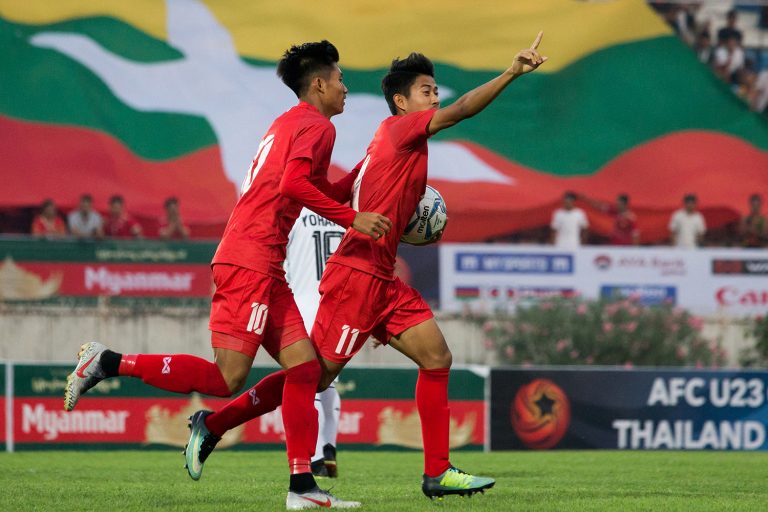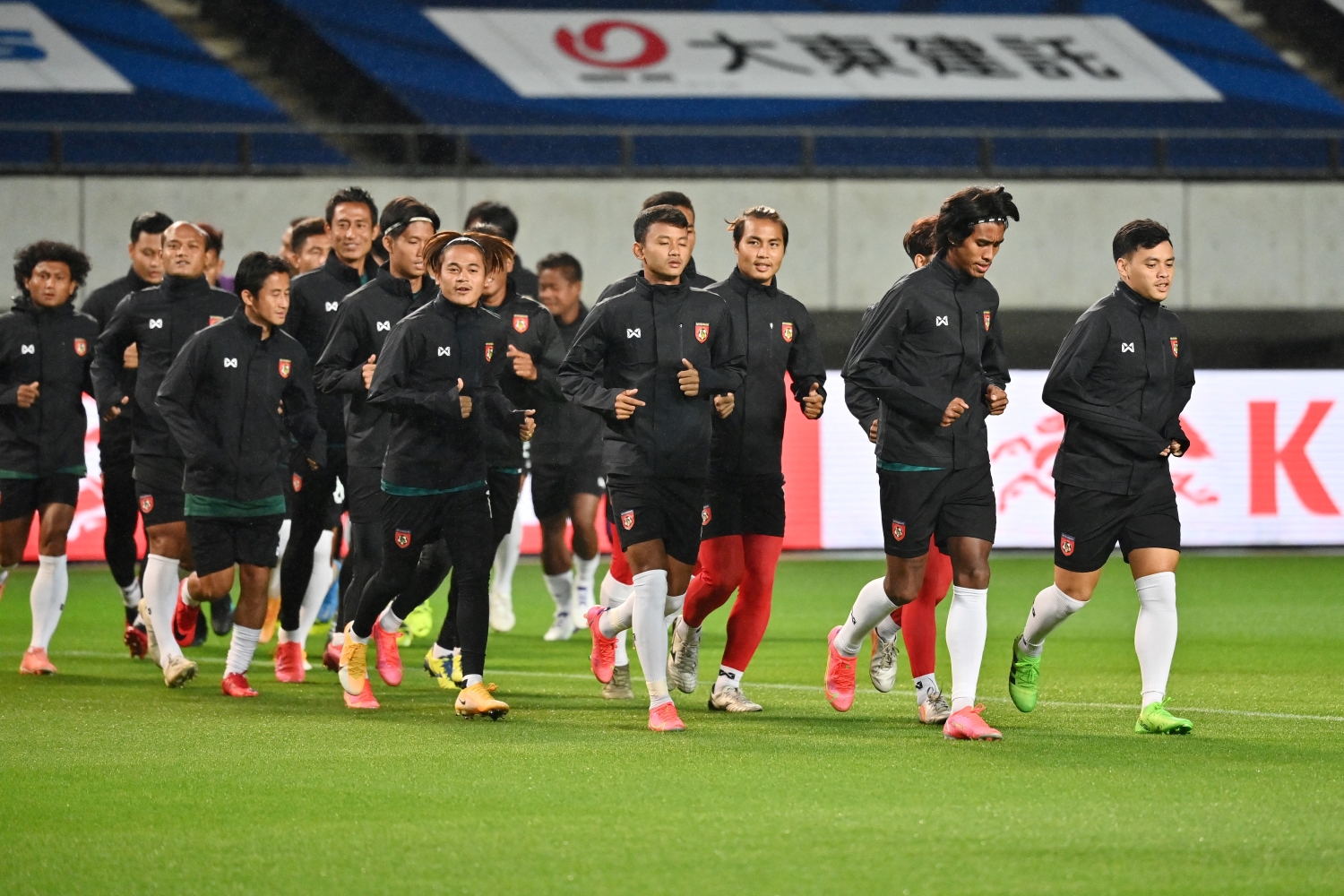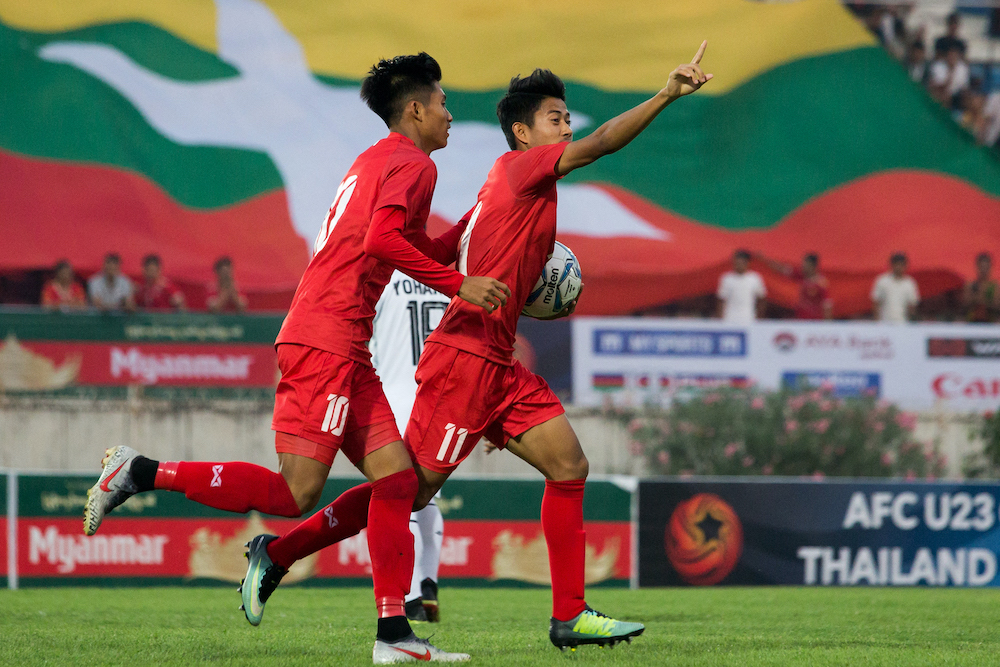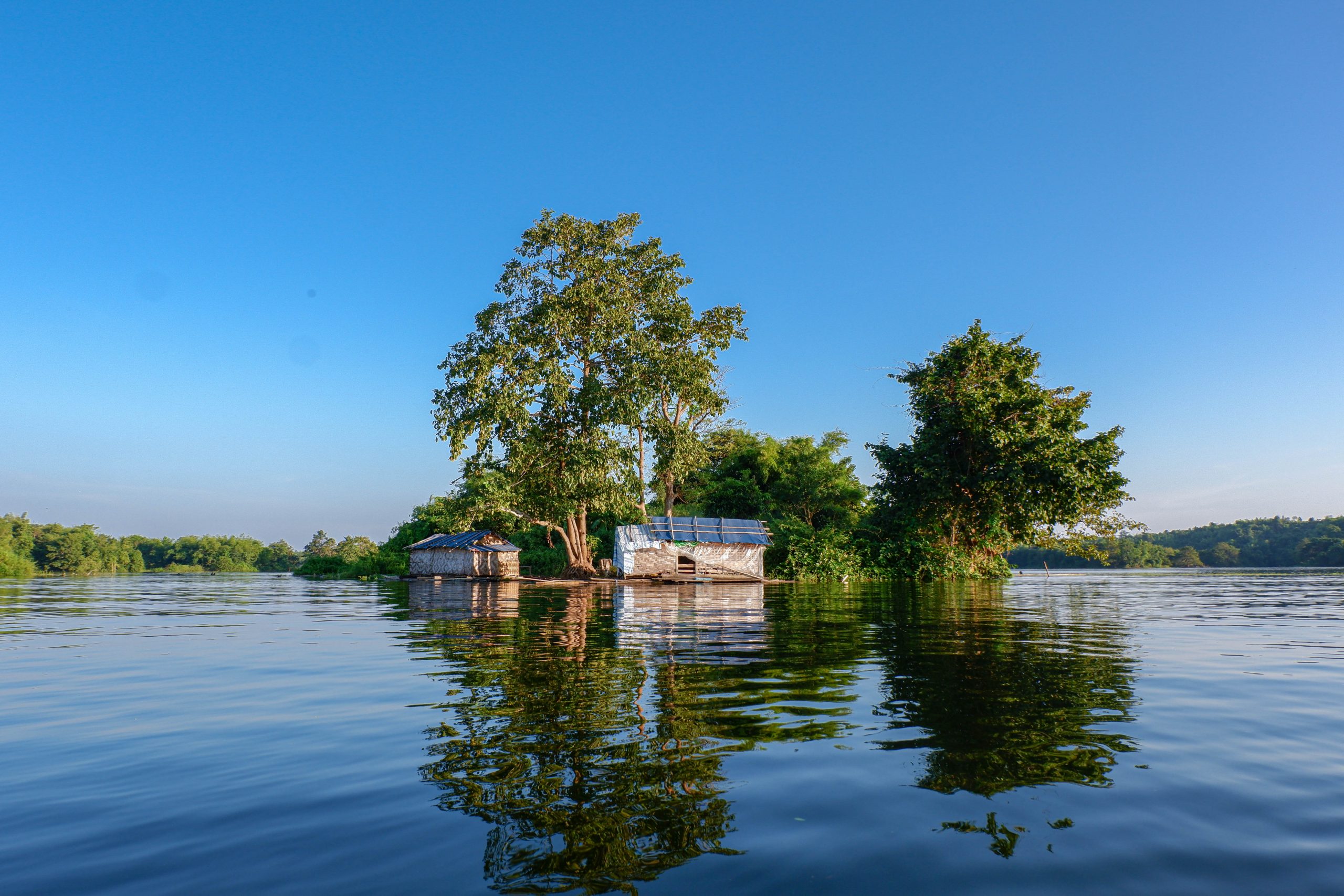How do you tackle health, education, gender, poverty and other social issues all at once? With a game of football, according to the British Council.
Its Premier Skills program, in partnership with the Premier League, has been training a select group of coaches to launch football programs at the grassroots level and use the beautiful game to unify and encourage Myanmar communities.
“Football is like a common language for everyone,” said British Council society programs manager Daw Mi Mi Myo Win. “Health, gender, drug addiction – whatever it is, [the coaches] are using football to solve these problems.”
The model has already been tested in Indonesia, Mexico and Egypt and other developing countries around the world. In 2014, Myanmar’s first trainees –students, coaches, players and others with a football background from throughout the country – received intensive training in methodology and community development. They were then sent into the community to start their own programs, ranging from rehabilitating high school physical education programs to starting a football league in camps for the internally displaced.
“A certain amount of the transformation in these young people is because the coaches can discipline the students and act as a role model,” said Premier Skills candidate U Phone Nyunt Ko, who spoke while running drills with a group of high school students on a pitch in Yangon. “Most of the students will copy you if you’re a coach. What you dress, what you do, what you play.”
Support more independent journalism like this. Sign up to be a Frontier member.
U Phone Nyunt Ko was a technical director at the Myanmar Football Federation when he joined the program. He said he and his fellow trainees knew how to play, but not necessarily how to coach, especially at the grassroots level. In the program, he learned coaching methods and how to use them to have a positive influence on young people.
“Under my coaching there have been teenagers who were very disobedient, who would fight and drink, and have now gone on to play for the under-18 squad and some of the local football clubs,” he said.
U Phone Nyunt Ko said another trainee had launched a football program in Rakhine State with teams of Rakhine and Rohingya players. Daw Mi Mi Myo Win said it showed how football can help people find common ground, even if only for the time they spend on the pitch.
It isn’t an easy job, she said. The program is in its second phase, in which the prospective coaches have returned again to their communities, but they are being closely monitored and only the best will be invited for more training. Of the original 48 trainees, only 12 will ultimately join the ranks of the Premier Skills coach educators.
Even if U Phone Nyunt Ko becomes coach educator, he intends to keep coaching young people.
“Football is like life. If you want to win in life you must try and work hard. You must learn to dribble, which is to struggle, [and to] pass, which is about cooperating,” he said. “Football can bring peace.”


